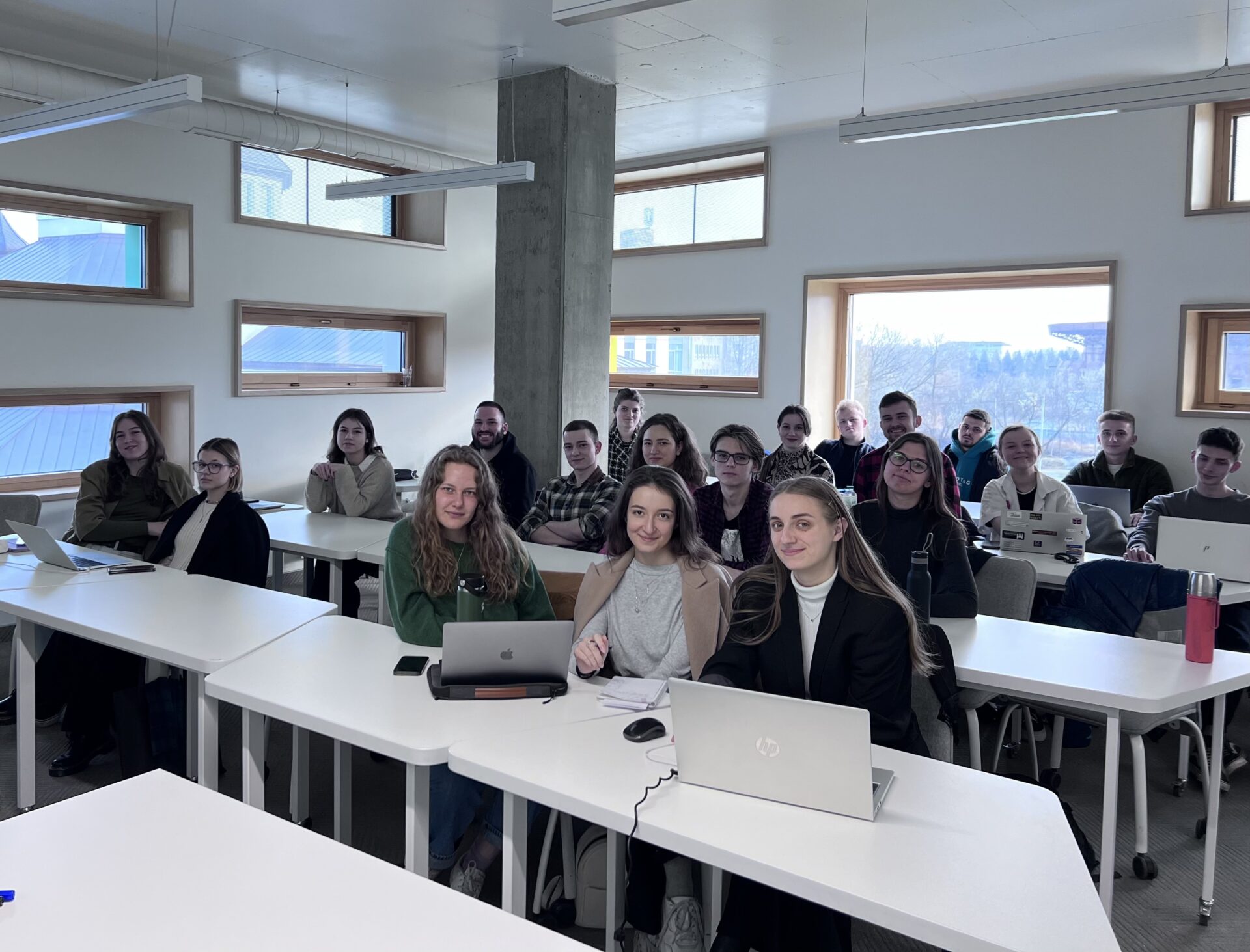How to replace Russian software, what are the alternatives and why is it important to do so? The students of the Ukrainian Catholic University are looking for answers to these questions as part of “Crisis Management and Decision Making under Uncertainty” class. The student project aims to research the subjects and causes of the crisis caused by the refusal of Ukrainian companies to use Russian software 1C/BAS, as well as finding ways to resolve it.

Daria Prokopiv, UCU student and project communications manager, says: “Our initiative was created to deepen our understanding of the impact of Russian software on the business environment in Ukraine, as well as to create a guide of all available ways to decolonise Ukrainian business. We hope that our work will help businesses to make better decisions in the context of the challenges we have faced over the past 10 years.”
Since the early 90s, when private business emerged in Ukraine after the collapse of the USSR, Russian software 1C has gradually taken over the accounting sector as there were no worthy alternatives. At the same time, there was no ideological aspect to counteract the expansion of Russian software—the idea of a single software was encouraged. The point of consolidation of Russian software in Ukraine was its introduction into the basis of educational programmes for accountants and bookkeepers.
After Russia started its war against Ukraine in 2014, the Ukrainian government officially imposed sanctions against Russian IT companies that posed a threat to national security. The list also included a number of software, including 1C and BAS. However, the decree was ineffective, as it did not provide for a legally enforceable penalty for the use of Russian technology.
As a result of Russia’s full-scale invasion in 2022, the issue of switching to alternative software has become more relevant and has gained more publicity in the Ukrainian business community, as the issue of ethics was added to the cybersecurity factor. However, switching to new software requires a lot of professional effort and time from management and staff, which complicates the the process of abandoning the Russian 1C and BAS. According to the “Ukrainian market research on the analysis of available alternatives to 1C/BAS software and the readiness of companies to change this product to an alternative product” by СFO Club Ukraine, 80-98% of businesses use 1C or BAS as a programme for automating accounting and consider the transition to other services a burdensome and complicated process. Moreover, some companies are not even aware of the existence of alternatives that are available on both the Ukrainian and foreign markets.
For example, solutions for small companies can be such programmes as: Dilovod, Bookkeeper, Debit. Plus, finmap, MASTER:Accounting, navkolo, BJet; for large companies—Odoo, SAP, ISPro, Microsoft Dynamics, IT Enterprise, etc.
The project “Crisis of the use of Russian software for enterprise accounting (1C and BAS) in Ukraine”, which is being implemented with the support of Self-ERP, BJet and the “OCA Ukraine”, is aimed at supporting Ukrainian businesses that want to abandon Russian software.

According to the project team, the main areas of research are:
A separate factor in the deepening of the crisis is the lack of effective communication from the state to highlight the risks of using Russian software. Because there is no incentive mechanism from the state authorities, the change of software software is changed solely on the initiative of company executives or managers.
“We are confident that the state’s involvement in informing about the transition and its importance will have an impact on the number of businesses that have abandoned Russian software and the efficiency of the process itself,” adds Daria Prokopiv.
The students plan to present the results of their research in a comprehensive article to discuss the identified trends and offer recommendations for businesses that considering switching to alternative software. To join the study and contribute to a faster transition from Russian software to alternative one, please fill out the Google form.
Contacts for the press:
Valeria Prylypko
communications manager
Project “The crisis of using Russian software for accounting of enterprises (1C and BAS) in in Ukraine”
valeriiaprylypko19@gmail.com
How to replace Russian software, what are the alternatives and why is it important to do so? The students of the Ukrainian Catholic University are looking for answers to these questions as part of “Crisis Management and Decision Making under Uncertainty” class. The student project aims to research the subjects and causes of the crisis […]
https://itcluster.lviv.ua/wp-content/uploads/2024/03/crisis_management_3.jpg